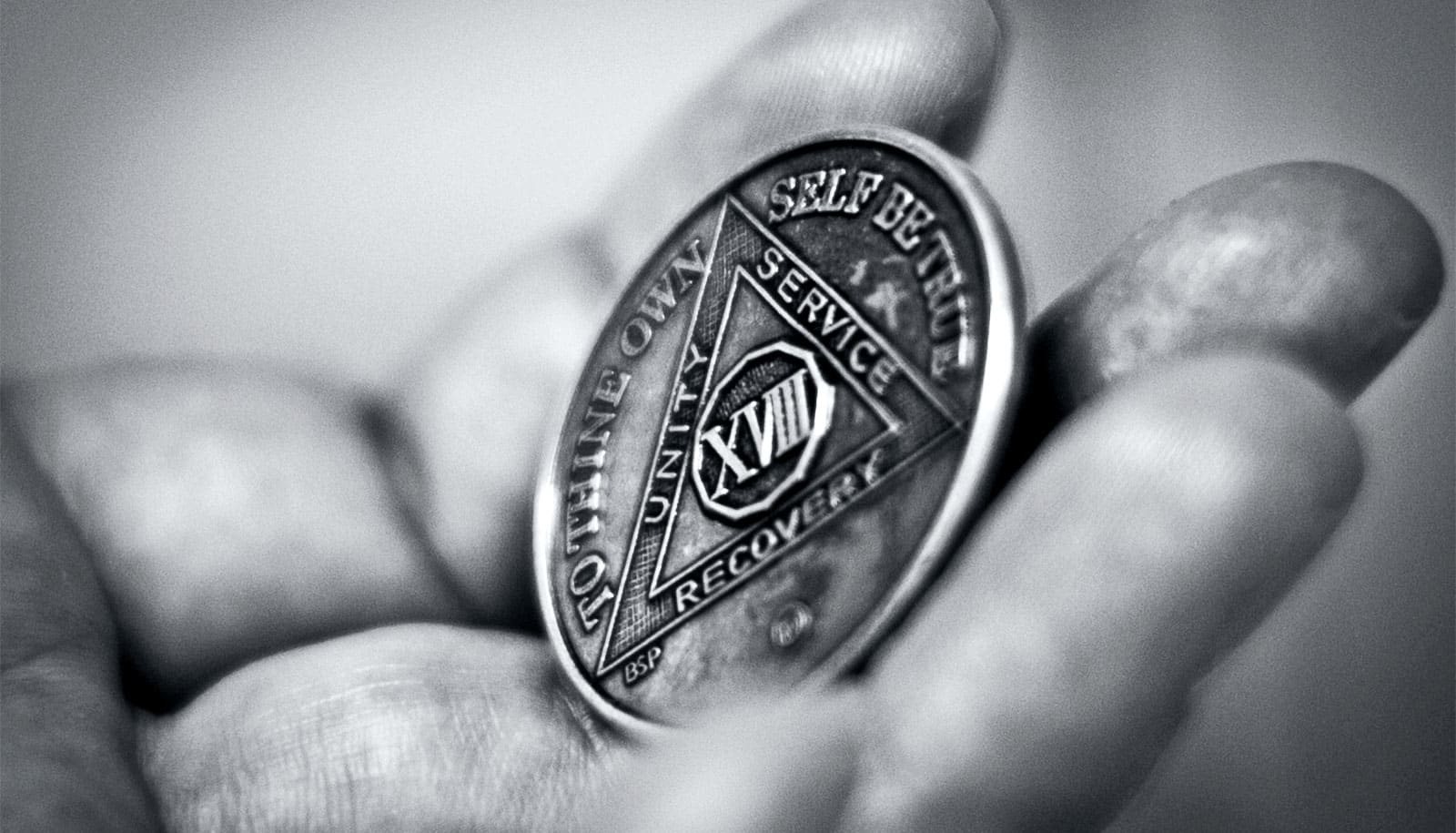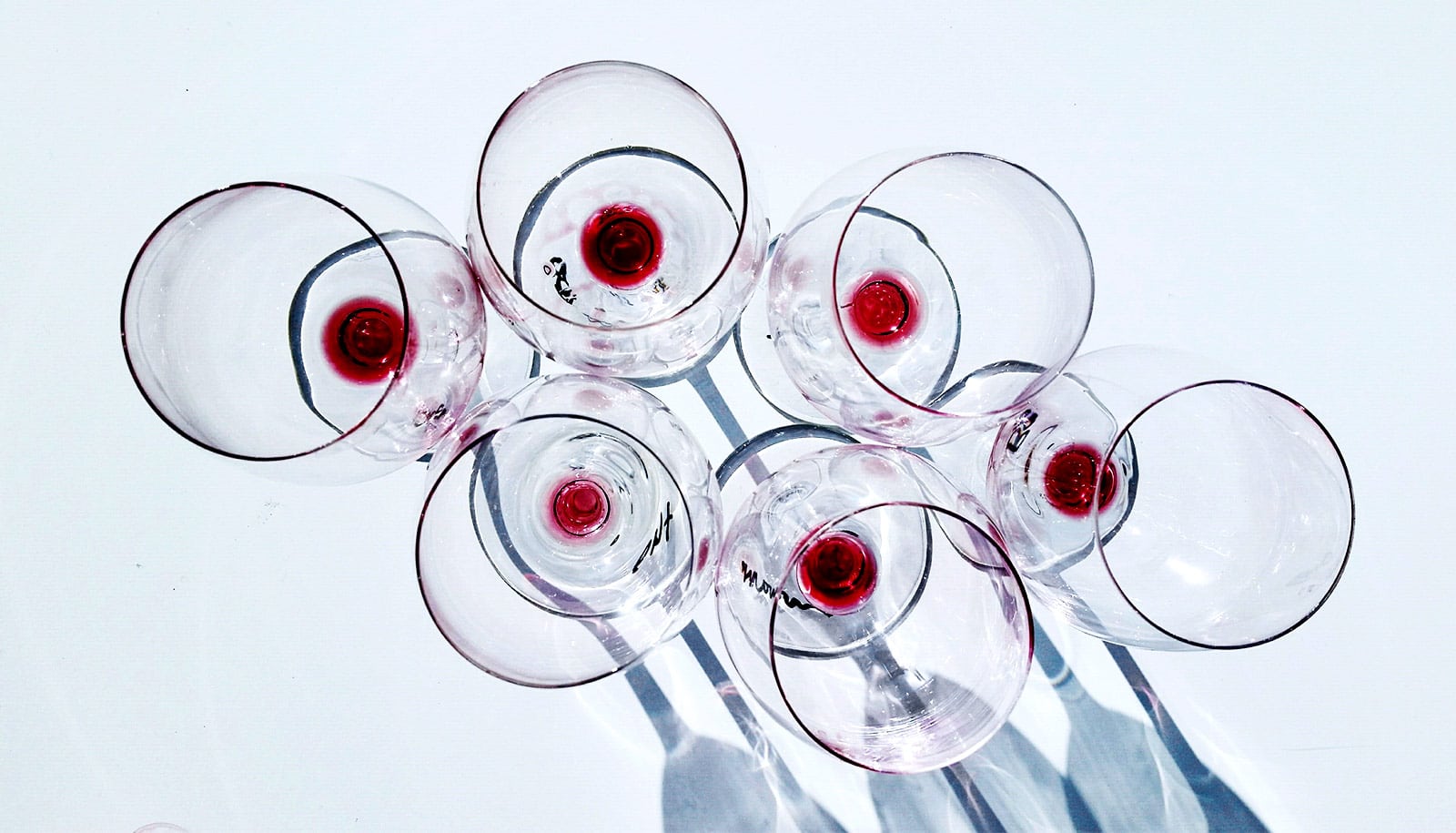
(Credit: Bernardo Fuller/Flickr )
Social ties make AA the most effective way to stop drinking
Alcoholics Anonymous is almost always more effective than therapy, a new review shows. AA participation lowered health care costs, too.

Alcoholics Anonymous is the most effective path to abstinence, according to a comprehensive analysis.
After evaluating 35 studies—involving the work of 145 scientists and the outcomes of 10,080 participants—Keith Humphreys, professor of psychiatry and behavioral sciences at Stanford University, and his fellow investigators determined that AA was nearly always more effective than psychotherapy in achieving abstinence. In addition, most studies showed that AA participation lowered health care costs.
AA works because it’s based on social interaction, Humphreys says, noting that members give one another emotional support as well as practical tips to refrain from drinking.
“If you want to change your behavior, find some other people who are trying to make the same change,” he says.
Listen to Humphreys discuss the research on this podcast:
Skepticism about AA remains
Although AA is well-known and used by millions around the world, mental health professionals are sometimes skeptical of its effectiveness, Humphreys says. Psychologists and psychiatrists, trained to provide cognitive behavioral therapy and motivational enhancement therapy to treat patients with alcohol-use disorder, can have a hard time admitting that the lay people who run AA groups do a better job of keeping people on the wagon.
Early in his career, Humphreys says, he dismissed AA, thinking, “How dare these people do things that I have all these degrees to do?”
Humphreys notes that counseling can be designed to facilitate engagement with AA—what he described as “an extended, warm handoff into the fellowship.” For the review article, Humphreys and his colleagues evaluated both AA and 12-step facilitation counseling.
AA began in 1935 when two men in Akron, Ohio, were searching for a way to stay sober; they found it by forming a support group. They later developed the 12 steps, the first being accepting one’s inability to control drinking; the last, helping others sustain sobriety by becoming a sponsor of a new member.
The AA model—open to all and free—has spread around the globe, and AA now boasts over 2 million members in 180 nations and more than 118,000 groups.
Though the fellowship has been around for more than eight decades, researchers have only recently developed good methods to measure its effectiveness, Humphreys says.
Examining effectiveness
For the new review, the researchers found 57 studies on AA; of those, 35 passed their rigorous criteria for quality. The studies used various methods to measure AA’s effectiveness on alcohol use disorder: the length of time participants abstained from alcohol; the amount they reduced their drinking, if they continued drinking; the consequences of their drinking; and health care costs.
Most of the studies that measured abstinence found AA significantly better than other interventions or no intervention. One study showed it was 60% more effective. None of the studies found AA less effective.
In the studies that measured outcomes other than complete abstinence, researchers found AA was at least as effective. For the studies that considered costs, most showed significant savings associated with AA participation: One found that AA and 12-step facilitation counseling reduced mental health costs by $10,000 per person.
The researchers looked only at studies of AA; they excluded Narcotics Anonymous and organizations focused on addiction to other substances. While it was beyond the scope of their study, Humphreys says the AA review is “certainly suggestive that these methods work for people who use heroin or cocaine.”
Humphreys notes that the findings were consistent whether the study participants were young, elderly, male, female, veterans, or civilians; the studies in the review were also conducted in five different countries. “It absolutely does work,” he says of AA’s method.
He adds that he feels validated in giving advice to so many patients to try AA: “That was really good advice, and that continues to be good advice,” he says.
The review appears in Cochrane Database of Systematic Review.
The research received no funding. Stanford’s Department of Psychiatry and Behavioral Sciences supported the work. Additional coauthors are from Harvard Medical School and the European Monitoring Center for Drugs and Drug Addiction.
Source: Stanford University
The post Social ties make AA the most effective way to stop drinking appeared first on Futurity.
Share this article:
This article uses material from the Futurity article, and is licenced under a CC BY-SA 4.0 International License. Images, videos and audio are available under their respective licenses.
Related Articles:
COVID-19 stress could boost alcohol abuse risk
Sept. 21, 2020 • futurityBroken ‘brake’ makes it harder to stop drinking
Feb. 19, 2019 • futurityLinks/images:
- https://www.futurity.org/depression-and-alcohol-comorbidity-2266732-2/
- https://www.futurity.org/alcohol-dna-changes-1969012/
- https://doi.org/10.1002/14651858.CD012880.pub2
- http://med.stanford.edu/news/all-news/2020/03/alcoholics-anonymous-most-effective-path-to-alcohol-abstinence.html
- https://www.futurity.org/alcoholics-anonymous-abstinence-2305852/
- https://www.futurity.org


